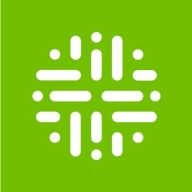

SAP Data Hub and Collibra Platform are competitors in the data management space, each offering distinct advantages. SAP Data Hub appears to have the upper hand in data integration and orchestration, while Collibra Platform is stronger in governance capabilities.
Features: SAP Data Hub provides advanced data orchestration, integration capabilities, and seamless connectivity across disparate systems, making it ideal for complex data environments. Collibra Platform emphasizes data governance, metadata management, and data stewardship, ensuring a user-friendly approach to compliance and governance.
Ease of Deployment and Customer Service: Collibra Platform offers streamlined cloud-based deployment, reducing setup complexity and providing adaptable support, beneficial for organizations with limited IT resources. SAP Data Hub supports comprehensive on-premises or hybrid deployment, offering flexibility for large-scale implementations.
Pricing and ROI: SAP Data Hub demands significant initial investment but promises substantial ROI through its integration capabilities. Collibra Platform features flexible pricing, making it accessible for smaller organizations, focusing on long-term governance value.
| Product | Market Share (%) |
|---|---|
| Collibra Platform | 8.8% |
| SAP Data Hub | 1.1% |
| Other | 90.1% |
| Company Size | Count |
|---|---|
| Small Business | 20 |
| Midsize Enterprise | 9 |
| Large Enterprise | 55 |
Collibra Platform is preferred for workflows, data lineage, and a user-friendly interface. It enhances metadata management with robust collaboration, flexible customization, and powerful reporting, aiding organizations in effective data management.
Collibra Platform provides dependable solutions for metadata management, data lineage, and governance. It strengthens data governance with cataloging, glossaries, automation, and integration, supporting compliance and data quality management. Despite challenges with integration and metadata ingestion, the platform is vital for data governance programs, offering comprehensive AI capabilities and streamlined processes for enterprise data management.
What are Collibra Platform's key features?In industries, Collibra Platform supports IT teams through metadata management and data quality assurance. It is widely used for compliance initiatives like GDPR, speeding up digital transformation and enforcing policy management. Organizations employ it to consolidate business and technical metadata, ensuring effective enterprise-scale data management in diverse sectors.
The SAP® Data Hub solution enables sophisticated data operations management. It gives you the capability and flexibility to connect enterprise data and Big Data and gain a deep understanding of data and information processes across sources and systems throughout the distributed landscape. The unified solution provides visibility and control into data opportunities, integrating cloud and on-premise information and driving data agility and business value. Distributed processing power enables greater speed and efficiency.
We monitor all Data Governance reviews to prevent fraudulent reviews and keep review quality high. We do not post reviews by company employees or direct competitors. We validate each review for authenticity via cross-reference with LinkedIn, and personal follow-up with the reviewer when necessary.